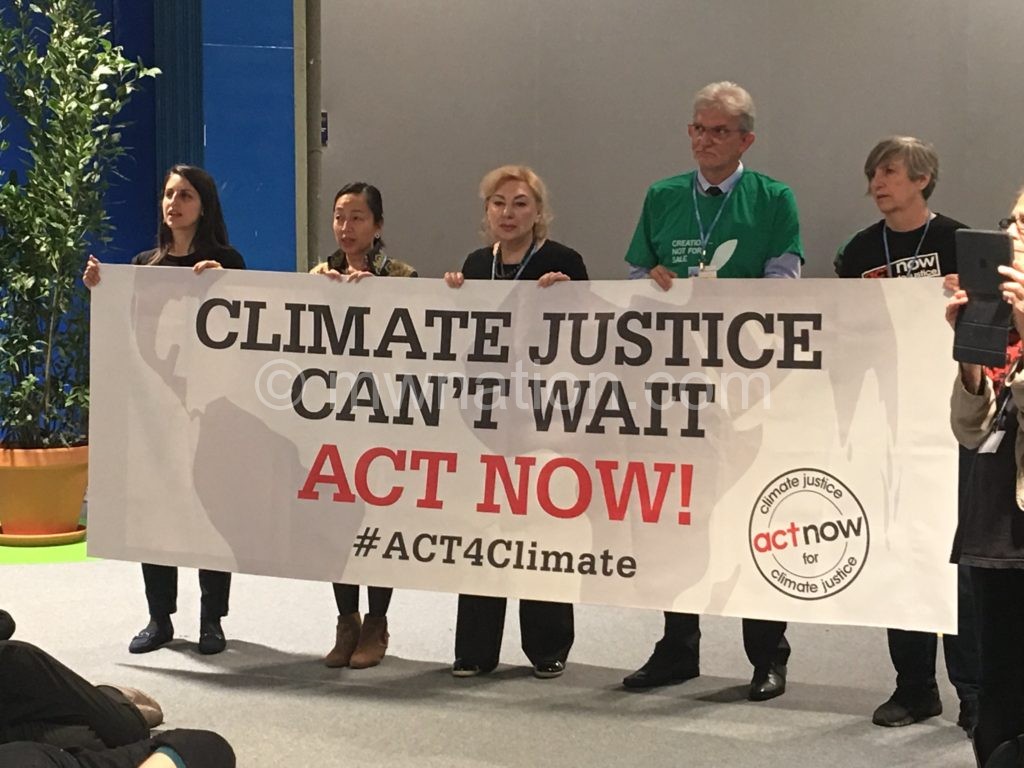Tale of ‘two COPs’ in Madrid
The Chile/Spain UN Climate Change’s 25th Conference of Parties (COP25) currently underway in Madrid, Spain is expected end on Friday December 13 2019—and the expectation is that by then a new and more ambitious Paris Agreement that calls for concerted and urgent action to tackle the climate crisis, would have been agreed upon and signed by parties to the United Nations Framework Convention on Climate Change (UNFCCC).

Wednesday laid bare a story of two COPs—one showcasing optimism and another of anger and impatience at the slow pace of negotiations so far. As ministers and heads of delegations took to the microphone in the high-level meeting canvassing for support towards mitigation and adaptation efforts, negotiators locked horns on Article 6 of the Paris Agreement that they decided to focus on share of proceeds from the Kyoto credits. When asked on the progress of the negotiations, they did put up a brave face saying “it’s going better than expected so far.”
But anger bristled through venue hallways and onto to the streets. Civil Society organizations disrupted proceedings through a mass protest and sit-in on a scale that many say has never been seen before at any COP. Protesters called on developed countries to “step up and pay up” which has been the call by some delegates especially from the global south—including Malawi, for an honest stock take of pre2020 times.
Delegates from developing countries argue that Annex I Parties (developed nations) have barely decreased their emissions since 1990.
Because of the lukewarm pace of negotiations, the cacerolazos, making noise by banging utensils in order to call for attention, echoed calls for action.
The UNFCCC secretariat tried to justify the expelling of civil society organisations who took part in the protests as “ an unfortunate security incident” and that the protests were unplanned “which made it necessary to take actions intended to ensure the safety of COP participants and to allow for the continuation of the conference proceedings.”
The UNFCCC secretariat confiscated the protesters’ badges and barred them from coming anywhere near Feria de Madrid. However, by 04:44 am (CET) on Thursday, the UNFCCC Secretariat issued a statement on the protests. They have rescinded the decision to bar protesters from participating in the conference—most of them are an integral part of the of observers involved in the climate discussions.
As the negotiations entered the tenth day on Thursday, December 12, 2019, there was renewed hope and energy after it emerged that parties have somehow managed to iron out their differences and agreed on some issues that were left hanging on Wednesday.
However, the protesters have vowed to stage another massive “sitting down” on Friday in downtown Madrid.
Finance which has been one of the sticky issues that parties have been grappling to agree on, is almost at the stage where a good deal might come out which will call for more adaptation. Some of the sticky issues on finance is the common definition of climate change finance. Also calls for progress report on $100billion and procedural discussions on what climate finance will look like after 2020. D Then there is the issue of Loss and Damage. African Group of Negotiators (AGN)—which negotiates for all African countries, called on discussions on privileges and immunities.
A presser aimed at updating delegates and the media on the progress of the negotiations organised by the Chairperson of the African Group of Negotiators, Ambassador Mohamed Nasr from Egypt, was called off because he was locked up in an emergency meeting, leaving many African delegates that had gathered in Plenary Room Chiloe, with anticipation of what is going on.
At around 14:30 pm (CET) Spain Ecological Transition Minister, Teresa Ribera said negotiations are stalling because some countries do not want to update their Nationally Determined Contributions (NDCs) but they want to limit emissions using old commitments they made.
“There are parties that think it is difficult to update the NDCs and that it is not necessary to do so,” Ribera said.
Thus year’s UN Climate Change Conference’s theme is; Time for Action.





